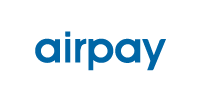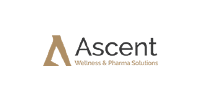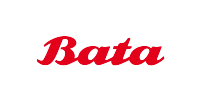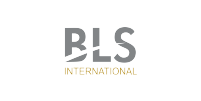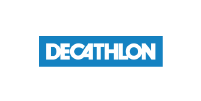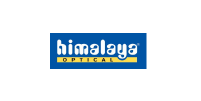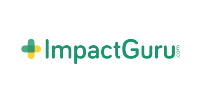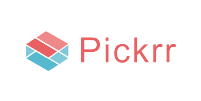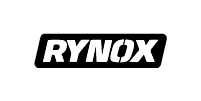6 min read |
We’ve all been there before – reading a paragraph full of insurance terms and feeling like we only understand every other word. Don’t worry, you’re not alone. Insurance jargon can be confusing, but it doesn’t have to be. Before you reach for the dictionary, check out our list of 25 basic insurance terms everyone should know. With this handy guide, you’ll be able to navigate insurance concepts with ease.
Why is it vital to know these insurance jargons?
Insurance can be a confusing topic, full of jargons that can be difficult to understand. However, it’s important to have a basic understanding of insurance terms and what they mean, as they can have a big impact on our lives. Understanding these terms is essential to understanding your coverage and what you can expect from your insurance company. If you have any questions about your policy, be sure to ask your agent or broker.
1) Actual cash value
There are a few different ways that your policy can be set up, and each one impacts the amount you are paid out when you file a claim. One such method is known as actual cash value, which is calculated by subtracting the amount of depreciation from the initial cost of the property.
Depreciation is usually calculated by subtracting a certain percentage from the property each year. However, not every insurance company calculates depreciation in the same way. As a result, actual cash value coverage is often less expensive than other types of coverage.
2) Actuary
This is one of the less-known out of all the insurance jargons. Actuaries are experts at evaluating risks by analyzing data and statistics. Generally, they work with insurance companies to help set rates for insurance products.
3) Adjuster
Some people also refer to it as a ‘claim examiner,’ an adjuster is the one who investigates a claim. They decide if the loss is covered by the policy, estimate damages, and often write a check to the insured.
4) Agent
A common insurance term. An agency or insurance agent is someone who sells insurance policies on behalf of an insurance company. The agent may be exclusive to one insurer, meaning they can only sell that company’s policies, or they may be non-exclusive and sell policies from multiple carriers.
5) Asset
The asset is well-known insurance jargon. Assets are the things you possess that have financial value or can generate financial value in the future.
6) Assured
Someone who has an insurance policy, and is another word for “insured” or “policyholder.”
Stay updated with us
7) At-fault
A less-known insurance term. In case of an auto accident, “at-fault” points out to the person who is liable for the damages
8) Beneficiary
A beneficiary is someone who is appointed as the recipient of payment of something like a life insurance benefit. Many people are aware of this out of all other insurance jargons.
9) Bodily injury
This simply refers to an injury a person sustains. In the case of an auto accident, bodily injury liability coverage is designed to pay for the expenses that sustain such injury.
10) Carrier
Many people are aware of this insurance terminology. Another word for the insurance company that offers you a policy.
11) Cause of loss
A well-known insurance term. Another word for ‘perils’ is referenced in policy language.
12) Collision
Collision refers to coverage that pays for damages to your vehicle after a collision. A collision can be either with another vehicle or an object.
13) Claim
Everyone is aware of this insurance term. A claim is a formal request to your insurance provider for repayment against losses or damages covered under your insurance policy.
14) Claimant
A claimant is any individual or entity requesting payment from an insurer. This jargon is not so well-known.
15) Comprehensive
Insurance carriers refer to OTC coverage as “comprehensive” coverage.
16) Coverage
We can easily say this is the most famous of the many insurance jargons. Coverage, or coverages, are the specific protections or benefits an insurance policy provides.
17) Damage
A common term. Damage refers to any loss or destruction, or harm to a person or property, such as a vehicle or home.
18) Damages
“Damage” and “Damages” are two different terms. Here damages refer to the actual money one person or party is required legally to pay to another.
19) Declarations page
This page contains vital information regarding your insurance policy. It will have policyholder information, like name, address, and policy number, as well as coverages, limits, premiums, deductibles, and dates of coverage.
20) Insured
This refers to the person or organization or entity which an insurance policy provides coverage for.
21) Insurer
An insurer is a company that provides insurance policies. This is another word for an insurance company, as the term “carrier.”
Stay updated with us
22) Named Peril Policy
An insurance policy that provides protection or coverage for certain perils outlined in the policy. Similarly, the opposite of a named-peril policy is an open peril policy, this policy provides coverage for all causes of loss except those excluded in the policy.
23) Other than collision (OTC)
OTC adds protection against things like fire, hail, fire, vandalism, and more to your personal auto policy. While it is not likely to cover all possible sources of damage, it covers most that occur outside of a collision.
24) Peril
Perils are the causes of damage to your insured property that your policy protects against. A basic policy will cover a certain set of perils, and endorsements can often add to that. Fire, lightning, and windstorms are some of them.
25) Policyholder
A very common term, which you might have heard. Policyholder refers to the person or organization an insurance policy covers.
26) Policy Jacket
In an insurance policy, the policy jacket is a document that contains all of the details about the specific policy. This includes terms, conditions, coverages, perils, exclusions, and so on. The policy jacket does not include endorsements or a declarations page.
Stay updated with us
27) Premium
This is the amount of money you, the insured, pay to an insurance company in exchange for coverage.
28) Replacement cost coverage
Replacement cost coverage ensures that you are reimbursed for the cost of replacing your belongings, rather than the depreciated value. This is especially important for high-value items that may not have a high resale value.
29) Rider
Insurance can be confusing. There are a lot of different words that mean the same thing. The word “rider” is one such example. Just like an endorsement, a rider is an amendment that can be added to a basic policy to modify it, typically for an additional premium.
30) Umbrella Insurance
An excess liability insurance policy is a type of liability insurance that expands the coverage limits above and beyond the limits of an underlying liability insurance policy. This type of policy can provide much-needed protection in the event of a serious accident or incident.
31) Underwriting
The underwriting process is what helps an insurance company decide whether or not to offer coverage for a particular risk, and also helps determine rates based on various factors found in an application. By analyzing an applicant’s information, an insurance company can get a better idea of the potential risks associated with providing coverage.


